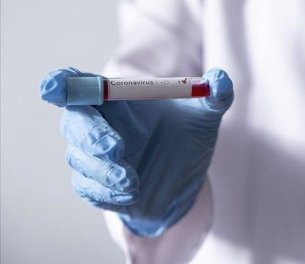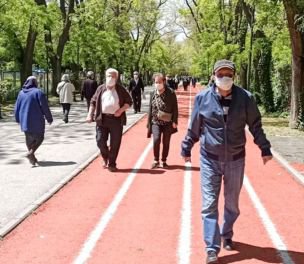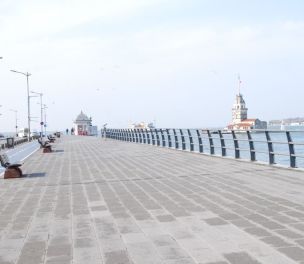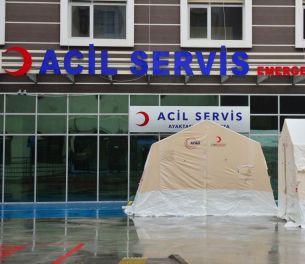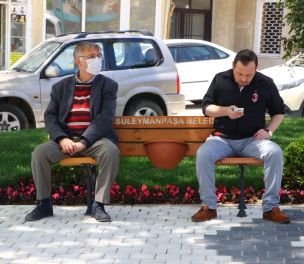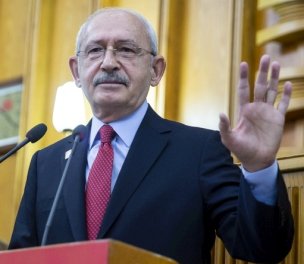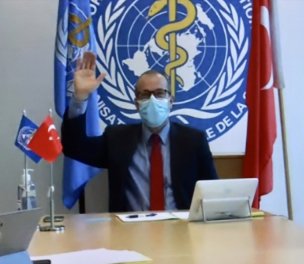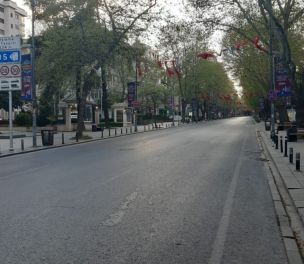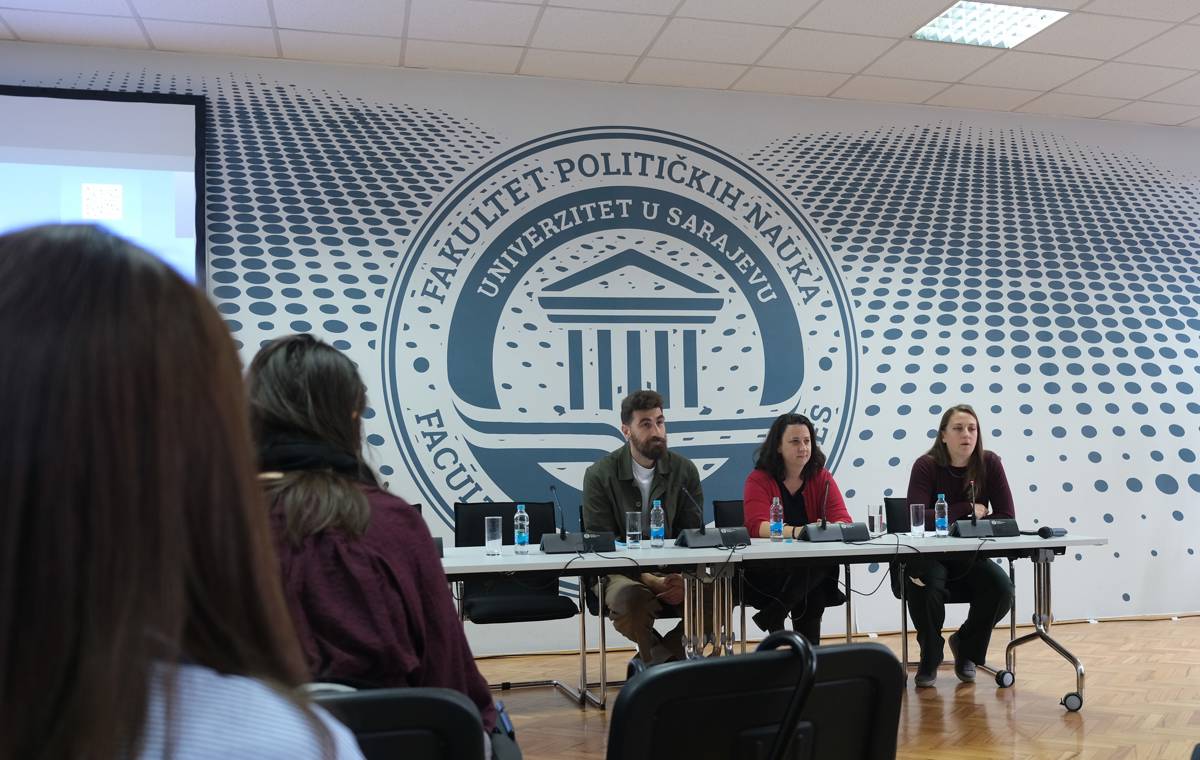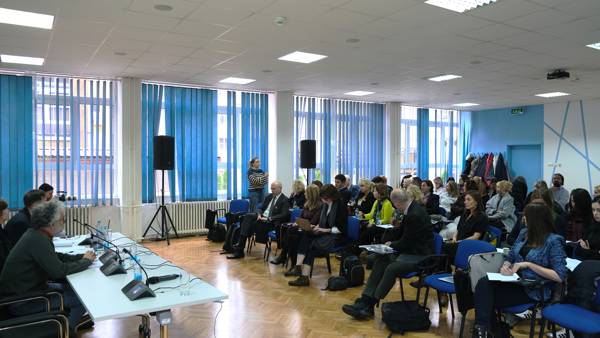Funeral cars in İstanbul. (Photo: İstanbul Metropolitan Municipality)
As the spread of the new coronavirus outbreak slows down in Turkey and in the world, the country's official tally says there have been a total of 139,771 cases and 3,841 deaths of Covid-19 so far.
However, these figures have been often disputed by doctors' organizations, opposition politicians and journalists, who have been pointing out the differences between average fatality figures in recent years and the past few months.
Reports casting doubt on ministry figures first emerged in late March. Veli Ağbaba, the vice-chair of the main opposition Republican People's Party (CHP), on March 29 tweeted the results of an inquiry of death statistics on the e-government website, which showed that 20 people in İstanbul alone died of Covid-19 or "infectious disease" on March 28, whereas the Ministry of Health stated that 16 people died of coronavirus on that day in the entire country.
Turkey had confirmed its first coronavirus case on March 11 and the first death on March 18.
The e-government system allows citizens to view the identity information and death causes of people who died in any province on a given day, based on municipalities' figures. Shortly after Ağbaba's tweets and reports by several outlets, the e-government removed that feature. A few days later, it reintroduced that but without disclosing death causes.
Mortality codes
The Turkish Medical Association (TTB), the largest professional organization of doctors in the country, stepped into the debate on April 9, stating that the Health Ministry only reported cases and deaths with a positive polymerase chain reaction (PCR) test, hence the actual tally was higher than official numbers.
PCR tests are conducted on samples collected from the nose and throat whereas the new coronavirus reproduces itself in the lungs and may not be detected in those samples, doctors say. The TTB says that doctors decide to treat many patients for Covid-19 according to computed tomography (CT) images and clinical findings even if they don't test positive for coronavirus.
In its statement, the association had also noted that the Health Ministry was not using the mortality codes recommended by the World Health Organization (WHO). One of the codes, U07.1, is for patients whose PCR tests were positive, and the other, U07.2, is for those who had the disease but died without a positive test. According to Turkey's Death Reporting System, U07.1 code was for MERS-CoV disease, which is caused by another variant of the coronavirus, and U07.2 code was for avian influenza infection, the statement had noted.
Statements by other professional medical organizations, including the Public Health Specialists Association (HASUDER), the Turkish Thoracic Society and several provincial medical chambers, were also in line with the TTB.
Turkey's "national definition" of Covid-19
Asked about the claims on multiple occasions in his regular press briefings on the progress of the pandemic, Minister of Health Fahrettin Koca said their figures were accurate and WHO, which also announces figures based on PCR tests, thanked them for their transparency. Though he avoided going into details about the mortality codes the ministry has been using.
WHO Europe's Covid-19 Health System Response Monitor also says that "Turkey uses a national definition of Covid-19 without referring to WHO or ECDC definitions."
CHP's parliamentary group deputy chair Özgür Özel said in a session on April 9 that the İstanbul Metropolitan Municipality's burial figures contradicted the official death toll. He said 300 people died of an "infectious disease" in the metropolis until March 31. The official death toll for the entire country was 214 on that day.
Excess deaths
Investigations by international media outlets ─The Economist, The New York Times and Financial Times─ based on the Metropolitan Municipality's database also found similar numbers of excess deaths in İstanbul, as well as in numerous other countries.
According to The Economist, the number of Covid-19 deaths in the city was 1,343 between March 22 and April 25. The total excess deaths between these dates were 3,067 compared to the average deaths between 2009 and 2019.
Financial Times also found 3,400 excess deaths for the March-April period compared to 2,700 reported Covid-19 deaths.
According to The New York Times, İstanbul recorded about 2,100 additional deaths from March 9 to April 12, according to weekly averages from the last two years.
In a press briefing on April 22, Minister Koca said that the increase was caused by the fact that those who died in İstanbul during the pandemic were buried in the city rather than their hometowns, contrary to the usual practice.
He also argued that the total number of deaths in the country during the pandemic was actually lower than expected. The number of deaths last year between January 1 and April 20 was 152,289 and the average mortality increase rate was 2.89 percent over the past decade, he noted. According to this calculation, the expected number of deaths in the same period this year was 156,684, whereas the actual number was 153,766 he said.
CLICK - All Updates on Turkey's Coronavirus Tally
On the other hand, there were cases that people died of Covid-19 in İstanbul but buried in their hometowns. One of them was Dilek Tahtalı (33), who died in the city on March 26 and was buried in Amasya, according to reports in the press. İstanbul Mayor Ekrem İmamoğlu also contradicted the minister's statement, saying that İstanbul's cemeteries department records deaths, not burials.
İmamoğlu, also a member of the CHP, said on April 28 in a broadcast on Halk TV that the number of deaths in the city during the outbreak was 30 to 35 percent higher than previous years.
The metropolis of 16 million has been by far the most affected city from the pandemic, having nearly 60 percent of the confirmed cases, according to a statement by Koca on April 1.
"They send us the data of citizens who passed away as infectious disease and normal death, but we cannot see the deaths of people diagnosed with Covid-19," İmamoğlu further said. He added that they contacted the governor's office and the ministry but did not get a response.
Daily cases, deaths and tests reported by the Ministry of Health:
(VK)





.jpg)
